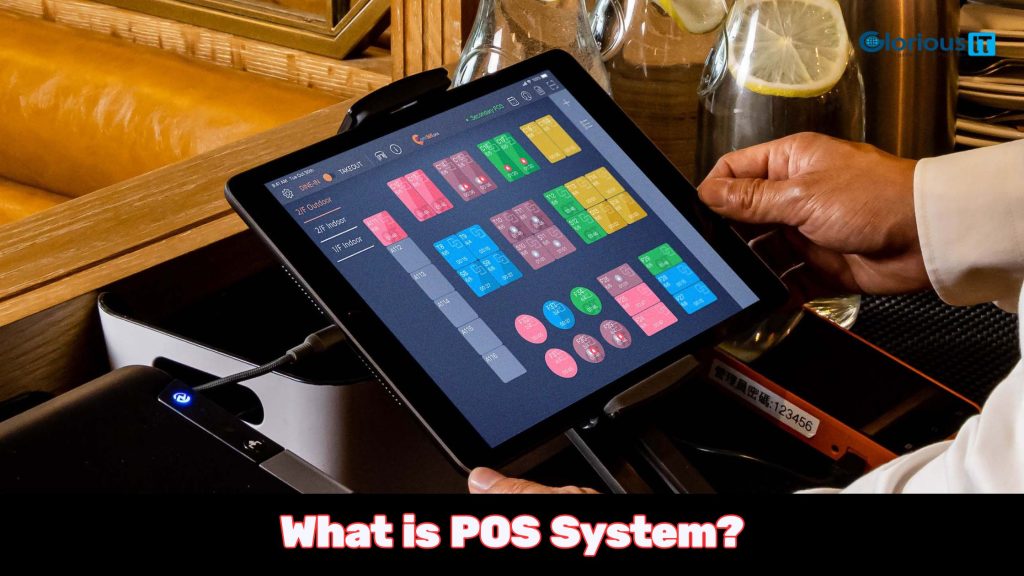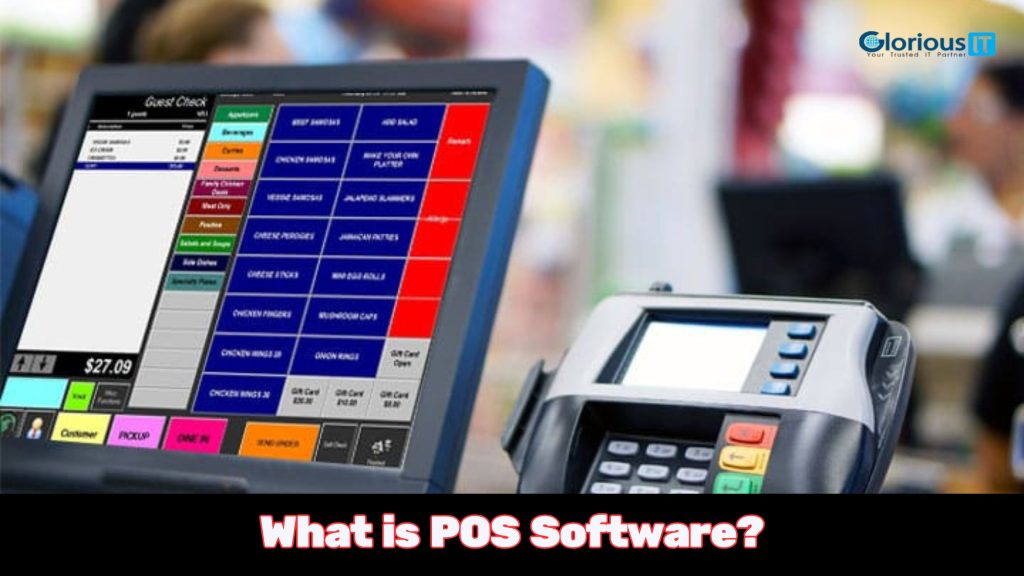The retail industry in Bangladesh has seen rapid growth in recent years, driven by technological advancements and modern payment solutions. Today, the retail market is estimated to be worth over $140 billion, with projections suggesting it could reach $350 billion by 2025.
Among the tools transforming this sector, the POS machine stands out as a key solution that enhances service efficiency and customer experience. In this article, we’ll explore everything about POS machines with Glorious IT.
Contents
- 1 What is a POS Machine? What Does POS Stand For?
- 2 Common Types of POS Machines in Bangladesh
- 3 Who Should Use a POS Machine?
- 4 Benefits of Using a POS Machine
- 5 How Customers Can Pay Using a POS Machine
- 6 POS Machine Fees
- 7 Tips for Using a POS Machine Safely
- 8 Frequently Asked Questions (FAQ)
- 9 Conclusion
What is a POS Machine? What Does POS Stand For?
POS stands for Point of Sale. A POS machine is an electronic device that enables businesses to process payment transactions via bank cards.
Essentially, it is the machine you see in stores, supermarkets, and restaurants where customers swipe or insert cards to pay for their purchases.
Main Functions of a POS Machine
- Card Payment: Supports payment via credit cards, debit cards, and chip cards.
- Receipt Printing: Generates a detailed receipt after every transaction.
- System Integration: Connects with inventory and sales management systems for real-time updates.
- Security: Equipped with advanced security features to protect customer transaction data.
POS machines simplify cashless payments for both businesses and consumers.
Common Types of POS Machines in Bangladesh
As POS technology evolves, different machines cater to diverse business needs. The most popular types include Mobile POS Machines and Electronic Cash Register POS Machines.
Mobile POS Machine
Mobile or handheld POS machines are compact, portable devices commonly used by small and medium-sized businesses, including mini-marts, cafes, cosmetic stores, and boutique shops.
Features:
- Ergonomic, handheld design for easy operation.
- Touchscreen or electronic display with mechanical keys.
- Integrated receipt printing and sales management software.
- Operates on battery power and connects to the Internet via SIM card.
Mobile POS machines are ideal for businesses that require flexibility and portability.
Electronic Cash Register POS Machine
These are larger, advanced POS systems designed for high-volume stores and supermarket chains. They combine the functionality of mobile POS with additional features.
Features:
- Barcode scanners, retail receipt printers, and cash drawers.
- Two design types: one-screen or two-screen models.
- Suitable for fixed locations like restaurants, chain stores, and supermarkets.
Electronic cash register POS machines handle more complex operations efficiently.
Who Should Use a POS Machine?
Different types of businesses benefit from POS systems based on their scale and needs:
- Mobile POS Machines: Best for coffee shops, eateries, small boutiques, and cosmetic stores.
- Electronic Cash Register POS Machines: Ideal for large retail stores, chain showrooms, supermarkets, and F&B outlets requiring direct order management at counters.
Benefits of Using a POS Machine
For Businesses
Accuracy & Speed: Reduces errors and speeds up payment processing.
Multiple Payment Options: Supports a variety of card and mobile payment methods.
Sales & Inventory Tracking: Generates detailed reports and integrates with inventory management systems.
Customer Data Management: Helps in running promotions and loyalty programs efficiently.
For Customers
- Convenience: Pay using cards or mobile wallets quickly and securely.
- Safety: Reduces risks associated with carrying cash.
- Promotions: Many cards and e-wallets offer discounts, cashback, or rewards when used at POS-enabled stores.
How Customers Can Pay Using a POS Machine
Card Payment
ATM & Credit Cards: Most POS machines in Bangladesh accept cards from any bank due to interbank connections.
Swipe or Chip: Magnetic stripe cards are swiped, while chip cards are inserted for secure transactions.
Mobile Payment
- E-Wallets: Scan the POS QR code via apps like Nagad, bKash, or Rocket and confirm the payment.
- NFC Payment: Supported devices with Google Pay, Apple Pay, or Samsung Pay can tap the POS machine to complete the transaction.
POS Machine Fees
Customers do not pay any fees for using POS machines. Merchant fees, set by banks, usually range:
- 2%–2.5% for international cards.
- Below 1% for domestic cards.
Occasionally, errors or third-party processing may result in charges, but this is not the norm.
Tips for Using a POS Machine Safely
For Businesses
- Ensure correct card handling depending on the card type (magnetic stripe or chip).
- Confirm transactions and obtain signatures when required.
For Customers
- Monitor transaction notifications via SMS Banking.
- Keep an eye on the payment process to prevent card information theft.
- Verify receipts before completing the transaction.
Frequently Asked Questions (FAQ)
Q1: What features does a POS machine have?
A POS machine can scan barcodes, process card payments, print receipts, track sales, manage inventory, and integrate with CRM systems.
Q2: How does a POS machine work?
It collects transaction data, processes payments through a secure network, updates store management systems, and prints a receipt.
Q3: What payment methods are accepted?
POS machines accept credit/debit cards, cash, e-wallets, and contactless payments like NFC and QR code.
Q4: Does a POS machine require the Internet?
Most POS machines need an Internet connection for online transactions and cloud updates, but some can store offline transactions and sync later.
Conclusion
POS machines are essential tools for modern businesses in Bangladesh, providing fast, secure, and convenient payment solutions.
With Glorious IT, you can leverage advanced POS technology to enhance customer experience, streamline operations, and grow your business efficiently.


